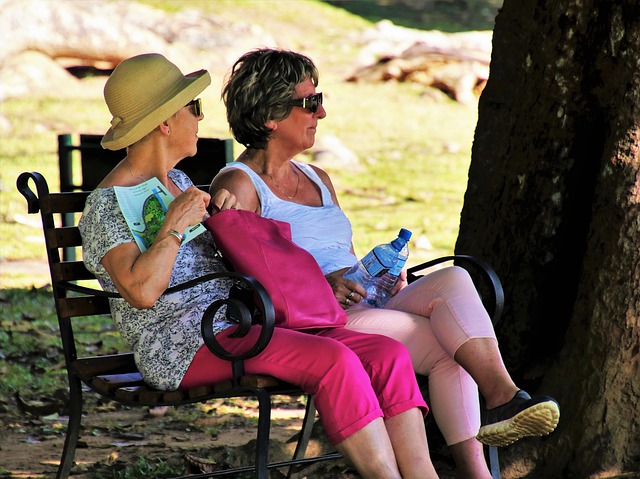Summer Heat Safety Tips for Seniors
Summer will soon be here with us and the hot Australian months are particularly dangerous for the elderly. The elderly are much more susceptible to heat exhaustion and heat stroke than the average adult. Luckily, there are several things seniors can do to stay cool and safe during our hotter months.

Summer Heat Safety Tips for Seniors
Stay in an air-conditioned location. If your home does not have air conditioning, go somewhere that does. Visit a friend or relative. Stop by the local library or mall, or head to the movie theatre for the afternoon.
Avoid direct sun exposure. If you must leave your house, try to do it in the early morning or late evening hours when the sun is not at its worst. Again, if you do need to leave your house, dress appropriately. Wear loose fitting, light colored clothing. A large, broad-brimmed hat will keep the sun off your face and help you avoid sunburn. And speaking of sunburn, don’t forget your sunscreen!
Stay hydrated! Drink plenty of water, and try to avoid drinks with alcohol or caffeine, which will dehydrate you quickly.
If you do need to spend time in the heat, it is important that you pay attention to your body and know the warning signs of heat exhaustion and heat stroke.
Symptoms of Heat Exhaustion in the Elderly
Heat exhaustion is a precursor to heat stroke caused by too much heat and dehydration.
Some warning signs that you are experiencing heat stroke include:
- heavy sweating or no sweating at all
- cold or clammy skin
- dizziness, headache, nausea or vomiting
- weak pulse
- and fainting
If you begin to experience any of these symptoms, you should move to a cooler, shaded location immediately and drink plenty of fluids like water or sports drinks with electrolytes. If you don’t start to feel better in a few minutes, or if you have heart problems, you should call 000 right away.
Symptoms of Heat Stroke in Elderly
Heat stroke is serious and can be deadly. It does not necessarily happen suddenly; it can occur gradually after several days of heat exposure. Generally in cases of heat stroke a person’s body temperature is over 104 degrees. In addition to very high body temperature, other signs of heat stroke include hot, red skin, a fast pulse, headache, nausea or vomiting, confusion or lethargy, and passing out. If you experience any of these symptoms of heat stroke, call 000 immediately.
Then, move to a cool, shaded location. Take off heavy clothing, and if possible spray yourself with cool water. You can also use clothes soaked in cold water on your neck, wrists, ankles, and armpits to help lower your body temperature. If possible, try drinking cool water or sports drinks while you wait for emergency personnel.
If you have elderly relatives or neighbors, be sure to check in with them during the summer heat. Make sure they are using their air conditioners if they have them, and check for warning signs of heat exhaustion. Cliche as it may sound, it is always better to be safe than sorry. Heat stroke and heat exhaustion are serious conditions, and if you think you or your elderly friend or relative has any signs of heat exhaustion, don’t be afraid to call 000 and get help.
Aged Care Placement Guide

Aged Care Planning in the Holiday Season
ResiCare Financial Changes - July 2025
Higher Everyday Living Fee (HELF)
Guide to Residential Care
Eligibility and Assessment
Residential Care Financials
Hints and Tips
Selecting the Aged Care Home
Admission Day
Transition and Settling In
Residential Care STAR Ratings